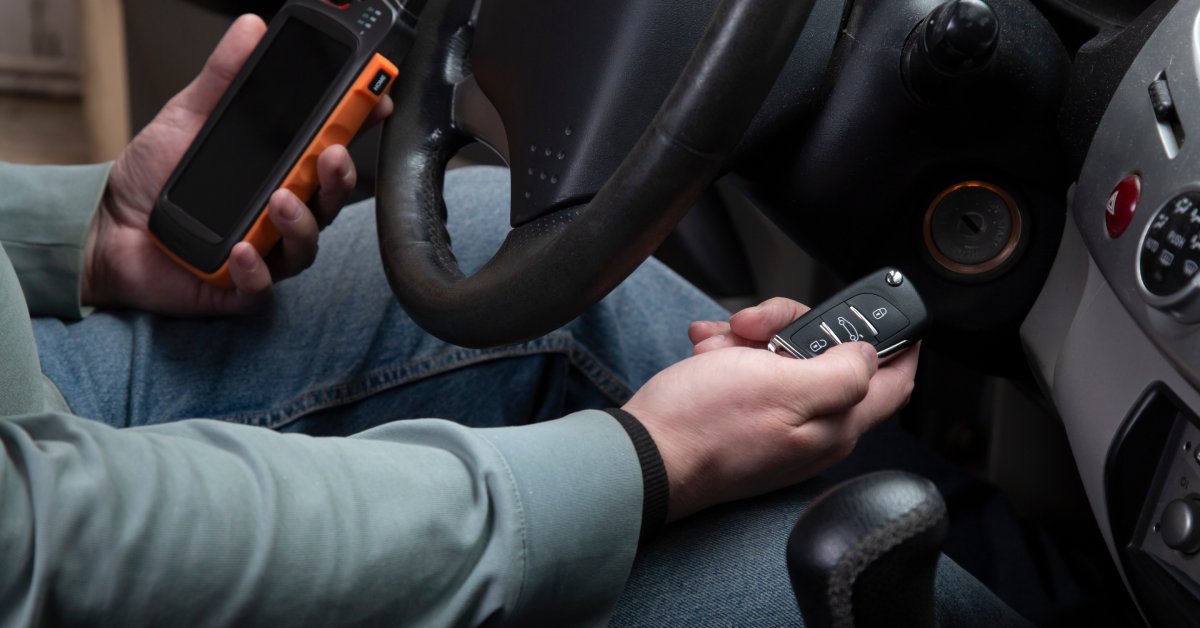
As modern vehicles have become more advanced, so too have the keys that operate them. Gone are the days when a simple cut key was all that was needed to start your car. Today, most car keys are coded to communicate electronically with the vehicle, providing an additional layer of security. While this technology offers peace of mind, it also makes replacing or duplicating keys more complex.
Understanding how car key coding works can be helpful, especially if you’ve lost your key, need a spare, or are buying a second-hand vehicle. With more vehicles relying on transponder technology and remote locking systems, knowing the basics can save time, money and stress.
How Coded Car Keys Work
Most cars manufactured in the UK since the late 1990s are equipped with coded keys, commonly known as transponder keys. Inside the plastic casing of the key is a small chip that sends a unique signal to the car’s immobiliser system. When the correct signal is received, the car starts. If the signal doesn’t match, the engine will remain immobilised as a theft prevention measure.
Some vehicles use a separate remote fob for locking and unlocking, while others integrate all functions into one smart key. In higher-end vehicles, proximity keys allow for keyless entry and push-button start, but these systems still rely on coded communication between the key and the car.
What Happens When You Lose a Coded Key?
Losing a modern car key is more than just an inconvenience—it can be a costly and time-consuming issue. Without the correct code, a replacement key won’t work, even if it’s been physically cut to match the original. In many cases, the lost key must also be removed from the car’s memory to ensure it can’t be used by anyone who finds it.
This is where a qualified locksmith with specialist knowledge in car key programming becomes essential. They can access your vehicle’s system, safely delete old key profiles, and code a new key that works seamlessly with your car’s immobiliser. Many mobile locksmiths can come to you and complete the job on-site, saving the cost and hassle of towing your car to a dealership.
Coding a New Key vs. Cloning
There are two main methods used when replacing or duplicating car keys: coding and cloning. Coding involves programming a brand new key into the car’s system using diagnostic tools, often with security PINs or codes unique to the vehicle. This is usually the method used when a key has been lost or stolen.
Cloning, on the other hand, copies the information from an existing working key onto a new chip. This is typically quicker and less expensive but can only be done if at least one functioning key is available. Some car makes are easier to clone than others, while more advanced systems use encryption that prevents cloning entirely.
Not All Locksmiths Are the Same
While many locksmiths offer key-cutting services, not all have the equipment or expertise to deal with modern car key coding. A qualified auto locksmith will have the tools needed to access your car’s onboard systems, safely program new keys, and advise on the best options for your vehicle.
Choosing a locksmith who is experienced in key coding ensures that the job is done correctly and securely. Many can also supply and programme remote locking fobs and proximity keys for newer models, sometimes at a lower cost than a main dealership.
When Dealer Coding Is Required
In some cases, particularly with luxury or newer vehicles, only the main dealer has access to the necessary software and security codes to programme a new key. Brands like Mercedes, BMW and some newer Audis use encrypted systems that are dealer-protected. If you’re in this situation, expect to show proof of ownership and identification before the process can begin.
Even if a dealer must be involved, a locksmith may still be able to cut the physical key or assist in accessing the vehicle in an emergency. It’s always worth checking with a trusted locksmith first to see what options are available.
Why Having a Spare Key Matters
Given the complexity and cost involved in replacing a lost coded key, having a spare is not just convenient—it’s sensible. Many people wait until they’ve lost their only key before seeking help, which can lead to added stress, vehicle immobilisation and higher costs.
A spare key can often be coded or cloned while you still have a working one available, making the process quicker and more affordable. It also ensures you have a backup in emergencies, whether that’s losing your main key or simply locking it in the car.
A Blend of Security and Technology
Car key coding represents the intersection of modern convenience and security. It protects vehicles from theft and unauthorised use, but it also requires drivers to take a more proactive approach when it comes to key management. With the help of a qualified locksmith, however, understanding and navigating car key coding doesn’t need to be daunting.
Knowing how your key works, what to do in case of loss, and who to turn to for help puts you in control. Whether you’re replacing a lost key or simply preparing for the unexpected, understanding coded keys is part of keeping your vehicle secure and your day moving without interruption.

:max_bytes(150000):strip_icc()/GettyImages-2207128044-5545a1bbbf1d476fa242f512673c1d3f.jpg)